
Please wait, loading...

Please wait, loading...
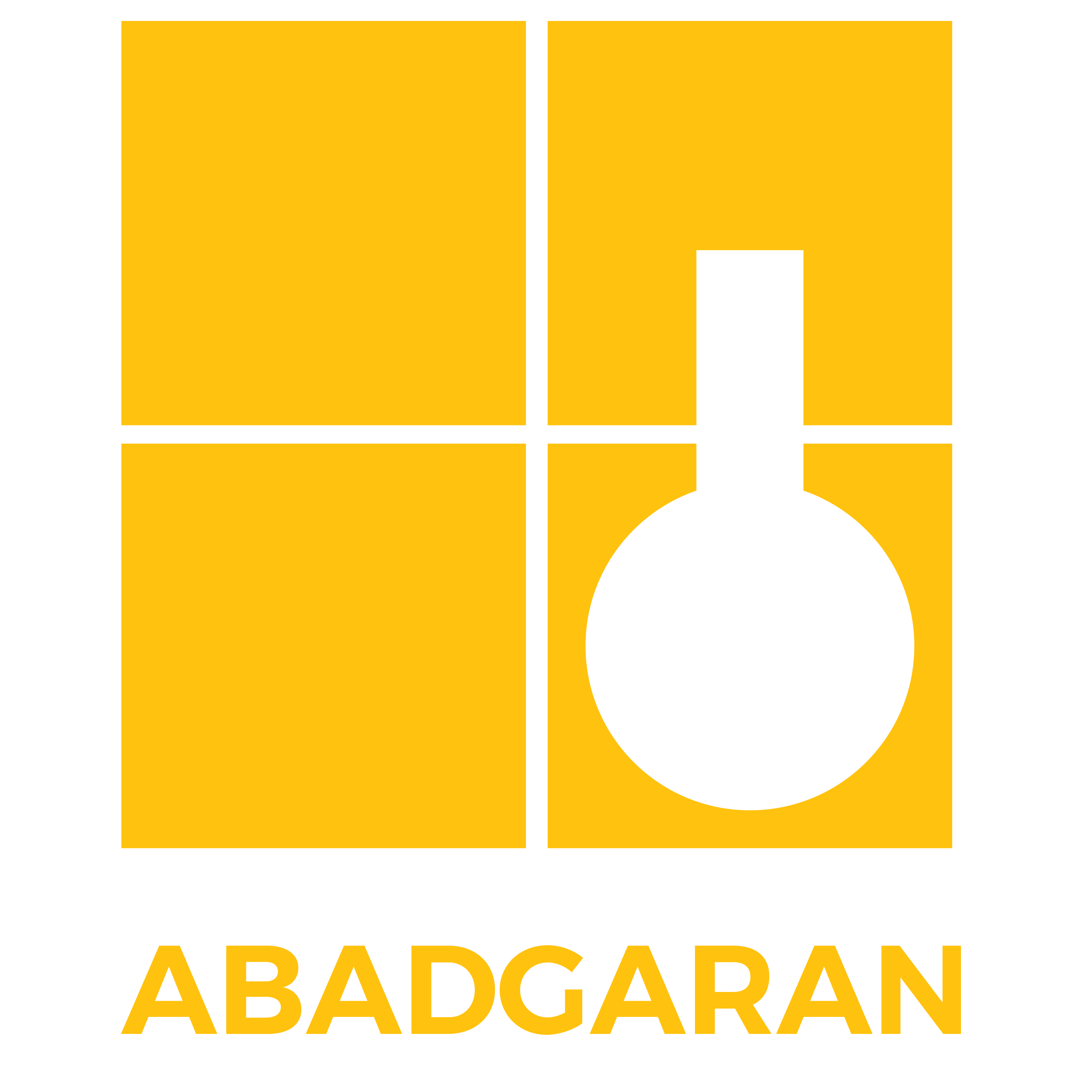
![]()

Epoxy and polyurethane floors are are widely recognized in the construction and industrial sectors for their high resistance to chemicals, moisture, and abrasion. However, the cleaning methods and maintenance practices used for these floorings play a crucial role in preserving their quality and extending their service life. This article explores various cleaning techniques, their advantages and disadvantages, and their overall impact on flooring durability.
Section 1: Characteristics of Epoxy and Polyurethane Floors
Epoxy flooring consists of resin and hardener components that create a tough, durable coating once applied. Polyurethane, on the other hand, is more flexible and offers better resistance to scratches, impacts, and gloss retention. Due to their unique chemical structure, both types of flooring require proper cleaning and maintenance practices.
For further information on the types of epoxy flooring, their applications, advantages, and disadvantages, refer to the article “Types of Epoxy Flooring” available on the Abadgaran Chemical Industries website.
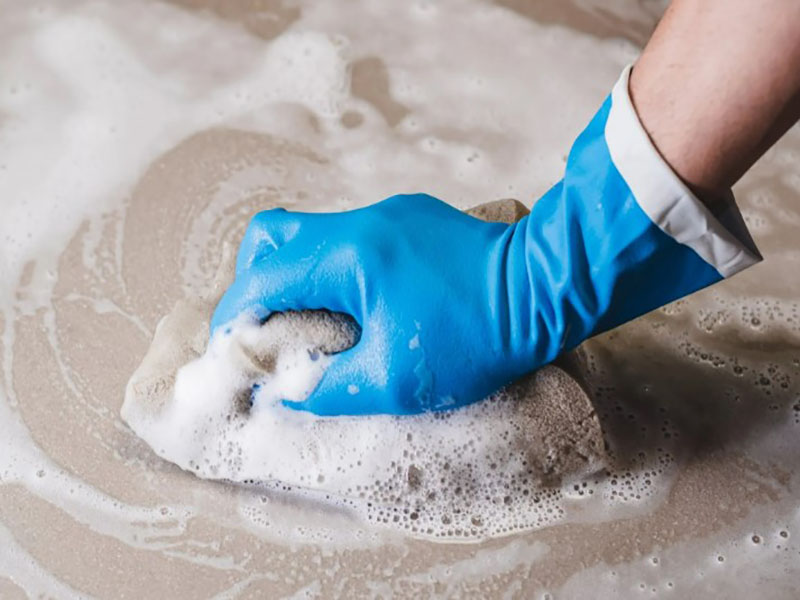
Section 2: 5 Non-Damaging Methods for Cleaning Floors
1. Daily Maintenance
Non-damaging methods typically involve gentle tools and pH-neutral products:
2. Deep Cleaning
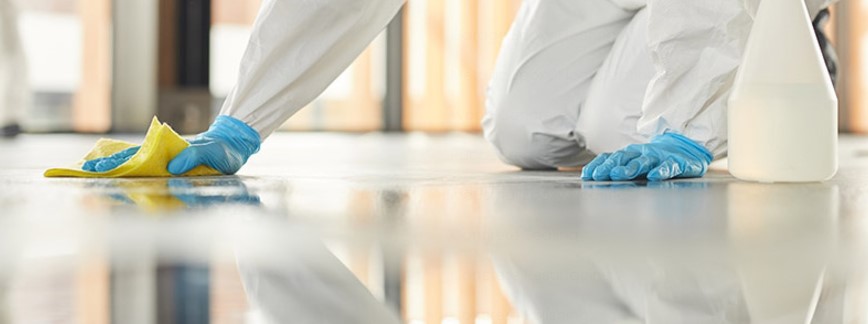
3. Removing Tough Stains
Recommended Alternatives:
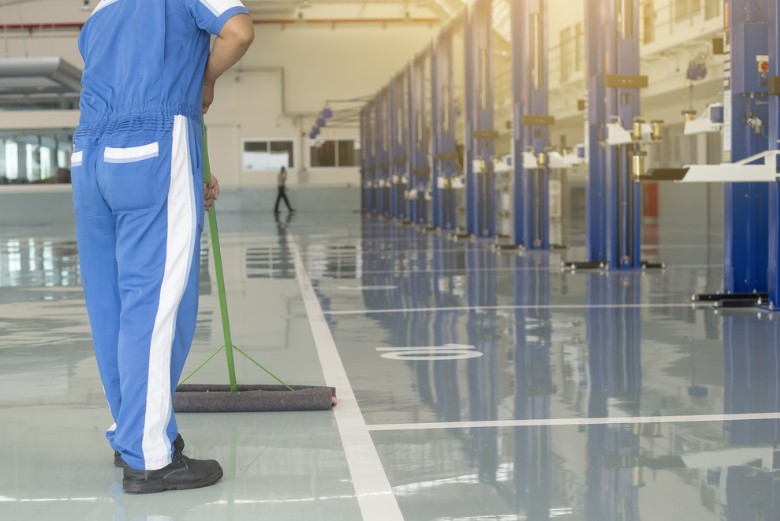
Important Tips on Using Cleaners
Section 3: 4 Damaging Cleaning Methods for Epoxy Floors
1. Use of Harsh Chemicals
Strong acids, industrial solvents, or high-alkaline solutions can degrade the top layer of the floor and create micro-cracks over time.
2. Abrasive Tools
Wire brushes, harsh scouring pads, or industrial grinders can scratch or destroy the protective surface, reducing resistance and dulling the finish.
3. High-Pressure Washing
Using high-pressure water can cause moisture to penetrate under the coating—especially if seams aren’t sealed properly—leading to blistering and delamination over time.
4. Delayed Cleaning of Spills
Failure to clean oil or chemical stains promptly allows deeper penetration into the coating, weakening the structure and decreasing durability.
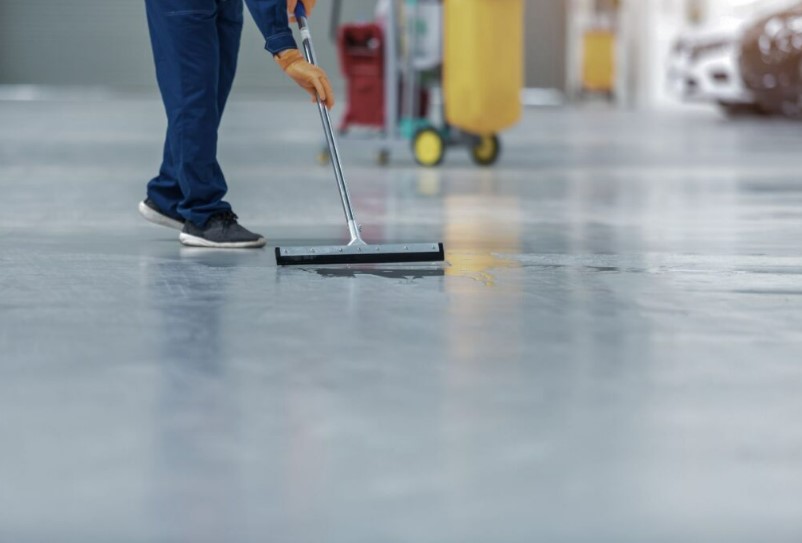
Section 4: Impact of Cleaning Methods on Floor Durability
Non-Damaging Methods:
Damaging Methods:
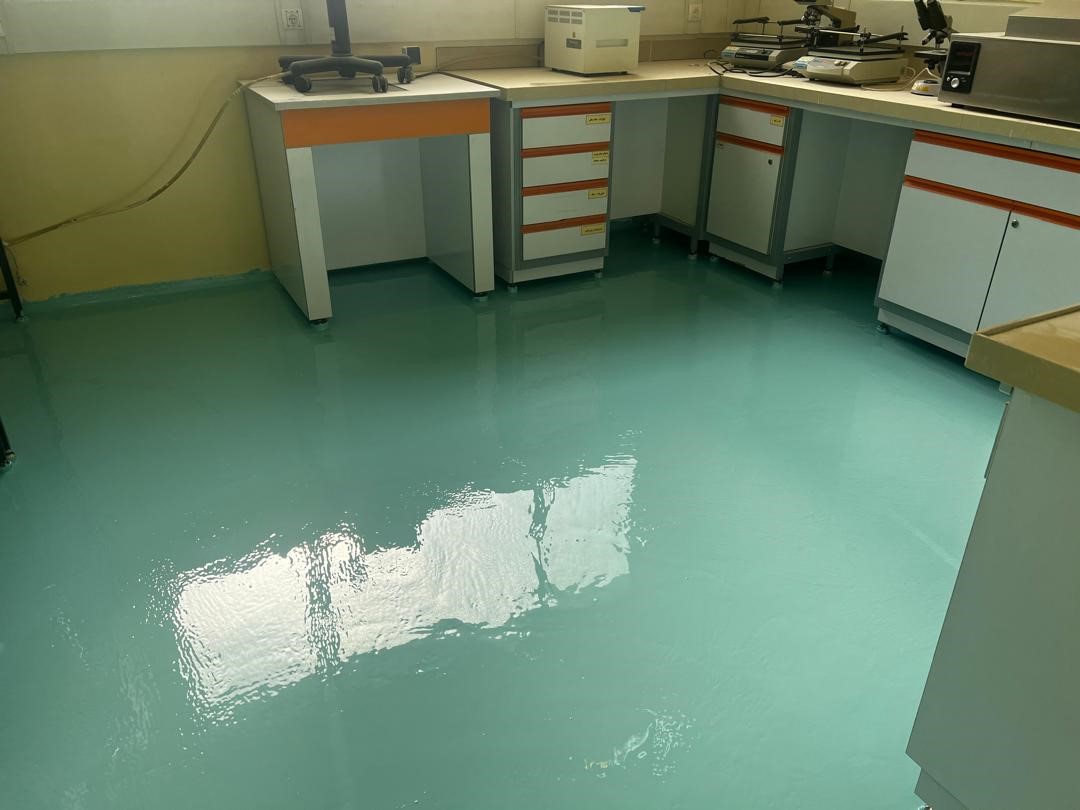
Conclusion: Summary of Best Practices
To ensure the best results when cleaning epoxy or polyurethane flooring:
Final Thoughts
Choosing the right cleaning approach for epoxy and polyurethane flooring not only maintains their appearance and structural integrity but also significantly reduces maintenance costs. Non-damaging techniques are the most effective way to preserve the flooring system, while aggressive methods—although effective in the short term—can lead to long-term, irreversible damage.
Abadgaran Chemical Industries is a leading manufacturer of construction chemicals in Iran, specializing in the design and production of high-performance epoxy and polyurethane flooring systems. With advanced technology and expert formulation, Abadgaran’s products are known for their mechanical strength, chemical resistance, and long-term durability—making them the ideal solution for industrial, commercial, and hygienic environments. The company's commitment to innovation and quality standards has earned the trust of major projects across the region.
sources:
https://infinityepoxyfloors.com/